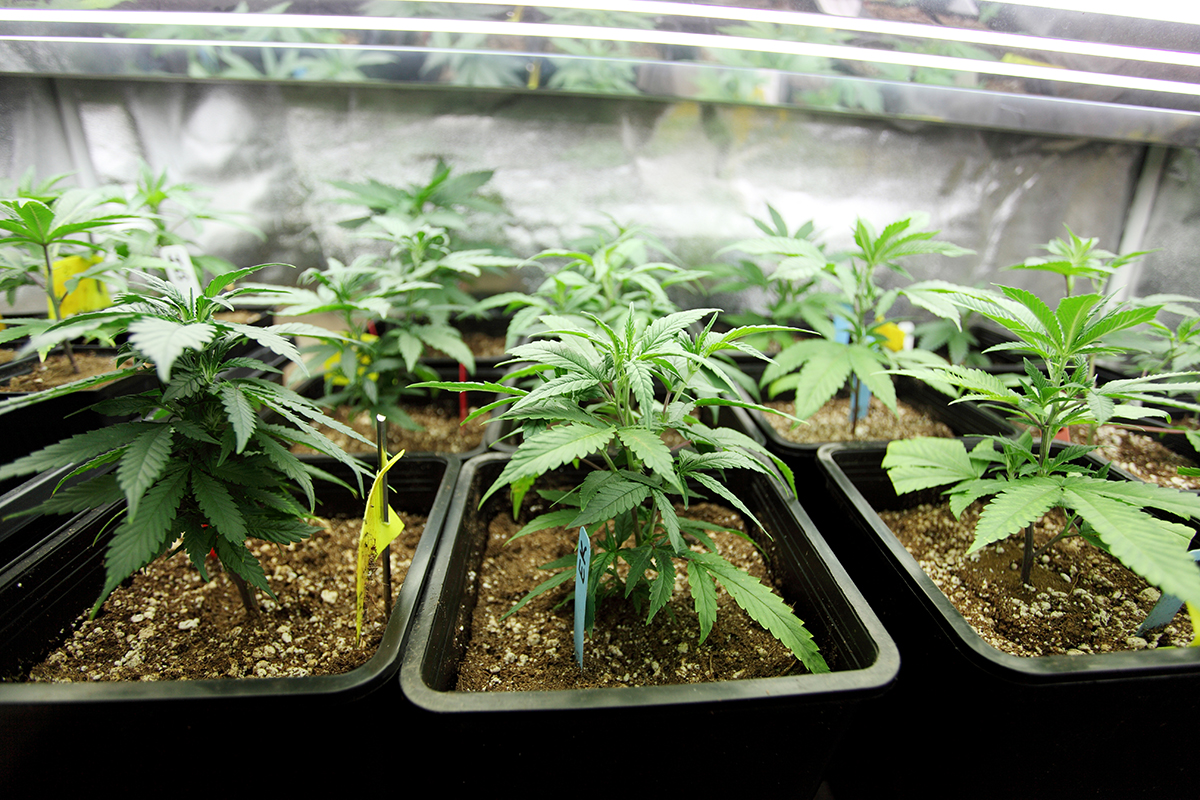Brookline Medical Marijuana Dispensary Now Open

Marijuana crop growing indoors via Shutterstock
The medical marijuana movement in Massachusetts hit a milestone last week when New England Treatment Access officially opened its dispensary in Brookline. Getting to that point was no easy task—it took approximately two years and dozens of meetings. For now, the dispensary is operating on an appointment-only basis, but that is expected to change in the coming weeks.
We caught up with Norton Arbelaez, a healthcare attorney and consultant for standards and practices at New England Treatment Access, which now has dispensaries operating in Brookline and Northampton, for an overview of the medical marijuana landscape these days.
What’s the biggest misconception currently surrounding medical marijuana?
That it somehow has to be a medicine of last resort. The thinking for a lot of the 2000s was only people dying of cancer or HIV/AIDS can have access to this. What the science is telling us is actually very, very different.
How so?
In the treatment of pain in particular, [medical marijuana] turns out to be a much healthier alternative than opiates, particularly in the context of the very dire opiate crisis that we’re seeing not only in Massachusetts or New England, but throughout the country.
Any other misconceptions?
Yes—that you have to smoke marijuana, that lighting up a joint is the only way to take the medicine. That certainly isn’t the case. Regulated medical marijuana allows us to produce any number of non-smokeable products. We have salves, we have pills, we have foods, we have creams, we have vaporizers, and we’re working on rolling out other products.
Are people embracing tinctures and edibles more so than the plant?
People haven’t had access to these products in the black market, and there’s a learning curve. That’s part of our mission—to give the patients the tools and information they need to chose the best option of delivery for them. We have definitely seen an adoption curve toward non-smoke-able products; we can’t keep them on the shelves. They are very popular. I expect over the coming years for these products to, if not outright replace smokeable marijuana, certainly to be a healthy complement.
It takes about five weeks from the first doctor’s visit to the point at which the patient can enter a dispensary. Is that a problem?
If you’re a patient with intractable pain, it would be a problem. But the fact is that the program is in its infancy, and the state has to err on the side of the caution. Hopefully we can streamline that, and people will have access to their cards a little bit quicker.
How old is New England Treatment Access’ oldest patient?
93.
What’s the average age of your patients?
46.
How would you describe the Brookline dispensary?
It’s a very comfortable place. It’s very modern—it kind of feels like an REI. As I like to say, we want to build a place that my mom or my grandmother would feel comfortable.
How long did it take to go from the concept of a dispensary in Brookline to opening it?
It’s been about two years that we’ve been working on getting local approval. The town has a very thorough vetting process. I think we sat before—and I’m not exaggerating—40 different hearings of some sort over the span of two years. But you know what? It made us a better organization.
Will it take as long in the future for other dispensaries?
I’d like to say no, I think it will go quicker. But change is difficult, and there are still a lot of communities in the commonwealth that are looking at this for the first time.

